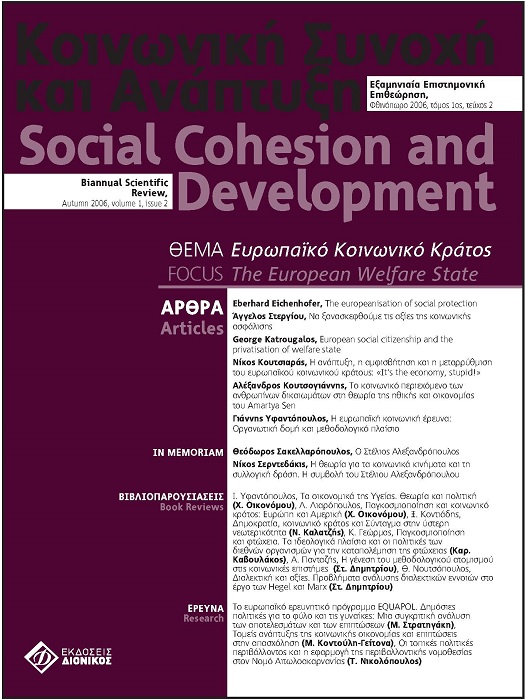The european social survey(ess): Organizational structure and methodological framework

Abstract
Over the last three to four decades, the European Commission and Eurostat have developed harmonized methodologies aiming at the collection and statistical analysis of European data. This process has contributed enormously to
the shaping and evaluation of social and economic policies as well as to the assessment of the Lisbon Strategy. The European Social Survey (ESS) constitutes a “New Scientific Instrument” for the investigation of beliefs, attitudes, ideas and social values of the Europeans. Currently, the total number of participating countries amounts to 32 and the data set includes more than 30,000 face to face interviews. The ESS data base is explored by more than 10,000 registered users, producing books, scientific articles, papers and policy documents. In Greece the first round (2002-2003) was conducted by face to face interviews in a random sample of 3.227 households and a response rate of 80%. The second round (2004-2003) was launched to 3.002 households and the response rate accounted to 74,2%. Greece, in comparison with the rest of the participating countries in the ESS study, fulfilled all the strict scientific criteria and achieved the highest response rates.
Article Details
- How to Cite
-
Υφαντόπουλος Γ. Ν. (2016). The european social survey(ess): Organizational structure and methodological framework. Social Cohesion and Development, 1(2), 75–91. https://doi.org/10.12681/scad.9018
- Section
- Articles

This work is licensed under a Creative Commons Attribution-NonCommercial-ShareAlike 4.0 International License.
Authors who publish with this journal agree to the following terms:
- Authors retain copyright and grant the journal right of first publication with the work simultaneously licensed under a Creative Commons Attribution Non-Commercial License that allows others to share the work with an acknowledgement of the work's authorship and initial publication in this journal.
- Authors are able to enter into separate, additional contractual arrangements for the non-exclusive distribution of the journal's published version of the work (e.g. post it to an institutional repository or publish it in a book), with an acknowledgement of its initial publication in this journal.
- Authors are permitted and encouraged to post their work online (preferably in institutional repositories or on their website) prior to and during the submission process, as it can lead to productive exchanges, as well as earlier and greater citation of published work (See The Effect of Open Access).


